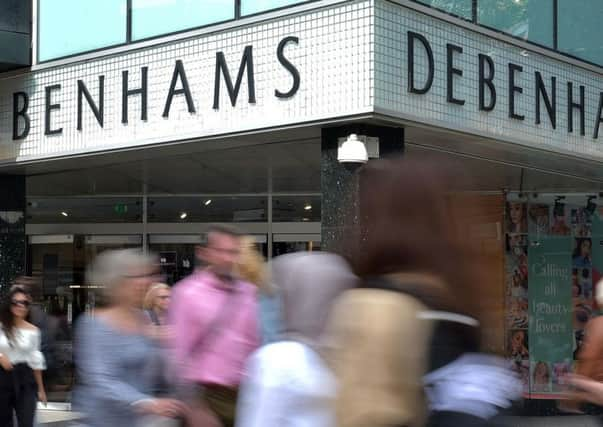Blackfriar: What Debenhams administration means for retail sector


Retail tycoon Mike Ashley called the administration of Debenhams a “national scandal” and called for the process to be reversed after the retailer’s lenders seized control.
The pre-pack administration wipes out the stakes held by Sports Direct and all other shareholders. Mr Ashley said the administration should be reversed and Sports Direct given access to information to “save the business for all stakeholders”.
Advertisement
Hide AdAdvertisement
Hide AdHe also slammed the authorities and the retailer’s advisers.
“These politicians and regulators have proven to be as effective as a chocolate teapot,” he said.
Mr Ashley’s Sports Direct had made a revised £200m rescue offer for Debenhams, delaying the department store’s administration.
Advisers at Lazard have been instructed to oversee a sale process for the retailer which will launch immediately, leaving the window open for Mr Ashley or another buyer to gain control of the chain.
Advertisement
Hide AdAdvertisement
Hide AdDebenhams has issued three profit warnings over the last year amid mounting debts. It has struggled against the structural shift to online shopping, resulting in declining footfall on high streets.
Last autumn the management team announced a restructuring programme which would see up to 50 stores close over a three to five-year period. This could well affect staff at Debenhams stores in Leeds, Sheffield, York, Bradford, Beverley, Doncaster, Harrogate, Hull and Wakefield.
Analysts at Shore Capital are now warning that new owners may well accelerate this restructuring plan.
It remains to be seen how long the lenders will own Debenhams as they may look to sell the assets.
Advertisement
Hide AdAdvertisement
Hide AdAnalyst Greg Lawless at Shore Capital says the big question is who might want to acquire the restructured department store chain?
Debenhams needs to restructure and downsize from the current store portfolio and renegotiate its leases with property landlords.
The UK retail landscape continues to evolve and Mr Lawless believes that those with the right customer proposition can still prosper.
Excess capacity being removed from the high street might be seen as a positive for other mid-market clothing retailers such as M&S and Next as they face less competition.
Advertisement
Hide AdAdvertisement
Hide AdOn the other hand, Mr Lawless said anchor stores like Debenhams closing in smaller towns will potentially affect already declining footfall.
Another potential loser from 50 Debenhams store closures would be Arcadia which has many of its brands as concession partners in-store.
Analysts said the big question remains how property landlords will recycle these large department stores for alternative use, as there may be few retailers interested in large store footprints in town centres.
Having battled for control of Debenhams to sit alongside House of Fraser that Sports Direct acquired in 2018 from administration, Mr Ashley won’t be used to losing.
Advertisement
Hide AdAdvertisement
Hide AdMr Lawless said there are interesting questions about Sports Direct’s behaviour through the whole process. He said that ultimately, it appears that it has been outmanoeuvred by the debt holders.
For the store workers who face the chop, none of this will matter. These are hard times for the retail sector.